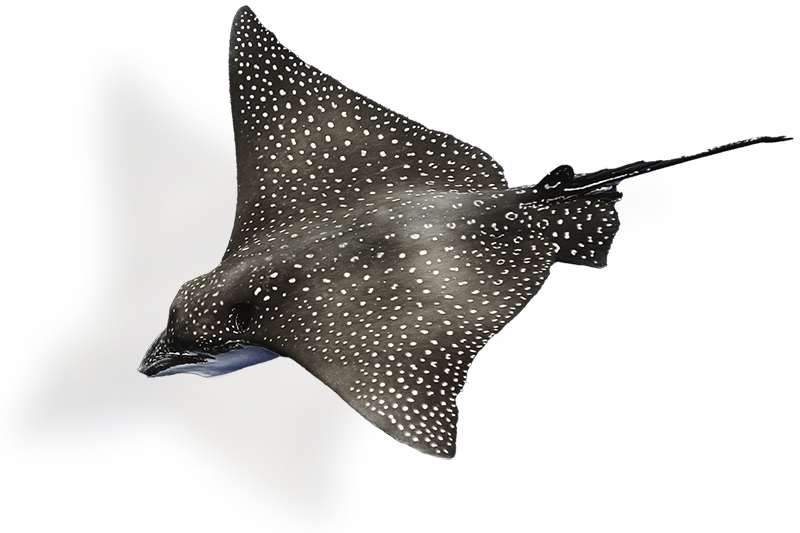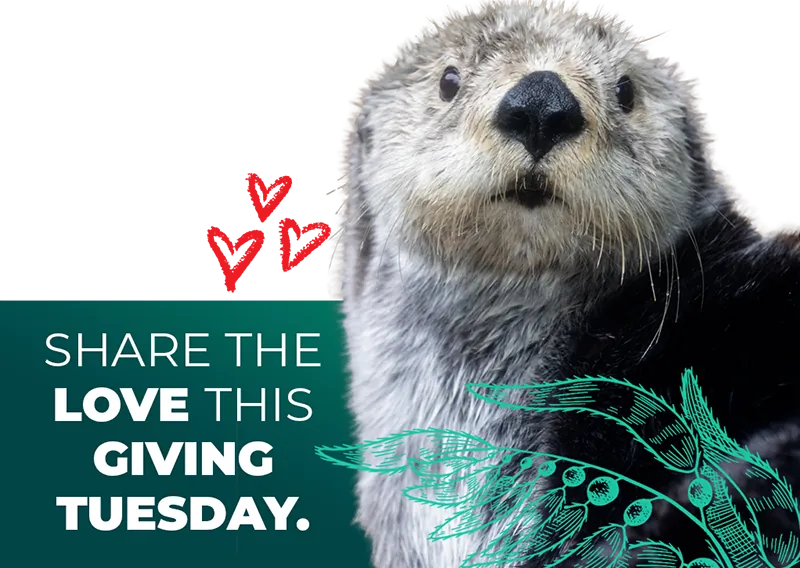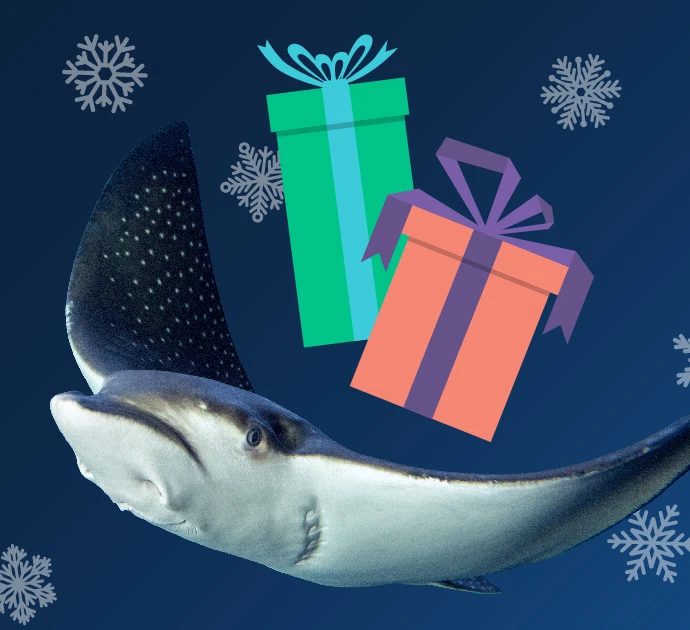EMPATHY FELLOWSHIP program
The Empathy Fellowship is designed to create a pipeline into careers in aquariums, zoos and the conservation field for communities of color and other marginalized communities that bear the brunt of environmental harm and historically haven’t reaped the benefits of the solutions proposed. The Empathy Fellowship will offer job experience in the marine conservation field, with a focus on the role that empathy can play in both marine conservation and addressing the disproportional impact of environmental degradation on communities of color and other marginalized communities.
Empathy fellows support the marine education outreach programming the Aquarium provides to our Connections program partners in the role of outreach educators, delivering empathy-based marine conservation programming within historically marginalized communities in the Salish Sea region. They also research, implement and present on individual Empathy Community Action Projects in order to apply all that they’ve learned to a real-world marine-conservation-related issue that impacts themselves and their community.
The one-year Empathy Fellowship will provide a cohort of participants with opportunities to learn about local marine life and conservation efforts, develop personal and professional goals, and become effective educators, facilitators and advocates for marine conservation, empathy and their communities. Fellows will culturally and linguistically reflect the community in which they will be working. Following the fellowship, the Seattle Aquarium will continue to support fellows through networking, job search advice and involvement in fellowship events.
Applications are currently closed.
FAQS
How many hours per week is the fellowship?
This is a full-time, one-year position starting in March 2023. The fellowship is a hybrid position with a core weekly schedule of up to 40 hours a week, with flexibility for occasional evening, early-morning or weekend hours in support of community partner events, outreach and field programs.
What kind of things can I do for an Empathy Community Action Project?
Fellows are given freedom and flexibility to develop a program that will address marine conservation and empathy for both marine life and humans within their chosen communities. Projects will need to be developed and integrated into current Aquarium programming for ongoing sustainability and capacity needs. Each fellow will be mentored and supported by two Connections program outreach specialists and the Connections program manager as they choose and implement their chosen empathy community action project.
Do I get benefits?
Yes! You will be eligible for paid holidays and vacation/sick time, as well as health care benefits, like all full-time Seattle Aquarium employees.
Will I be working in person?
Yes. This is a hybrid position and fellows will be expected to work in person at the Aquarium one day a week and up to four since on-site/in-person needs can vary based on outreach demands during our busiest seasons. For remote working days, fellows will be provided with a laptop and other resources to allow them to work remotely. Candidates will need to provide their own internet connection that is strong enough to take calls regularly over work channels.
What kind of qualifications are you looking for?
Skills, abilities and other requirements:
- Interest in marine science conservation.
- Interest in fostering empathy for people and animals as a conservation tool.
- Ability to communicate effectively, verbally and in writing.
- Demonstrated commitment to environmental justice and desire to serve communities that are disproportionately affected by environmental degradation.
- Interest in engaging courageous conversations about diversity, equity and inclusion topics such as social, racial and environmental justice.
- Enthusiasm and skill for developing relationships with people from diverse backgrounds, and building strong ties with the community.
- Fellows should self-identify from historically marginalized communities in the Salish Sea region.
- Familiarity with MS Office programs, including Word, PowerPoint, Excel, Teams and Outlook.
Education and experience: Minimum education and experience required.*
Required:
- High school diploma or equivalent.
- Six months working or volunteering in an organization such as a school, camp, community center, zoo, aquarium, nature center or other organization engaged in education or outreach with historically marginalized communities.
- Demonstrated interest in the Seattle Aquarium’s mission of Inspiring Conservation of Our Marine Environment” and/or related fields such as marine conservation, environmental education and environmental justice.
- Washington or other state driver’s license (or eligibility to obtain one upon arrival) and good driving record required.
- If candidate does not already have first aid and CPR certifications, will be required to obtain within 90 days once hired (Aquarium will provide access to this certification).
Preferred:
- Strong preference will be given for proficiency in a second language: Spanish, Chinese, Korean, Tagalog, Lushootseed, Japanese, Vietnamese, Amharic or Russian preferred.
- Resident of the Salish Sea region; connected to local communities.
*In lieu of traditional education and work experience, comparable life experience will be considered.
Do I have to live in the Seattle area?
Yes. Fellows will be required to work on site and expected to live within a commutable distance from the Seattle Aquarium.
Empathy Fellowship alumni
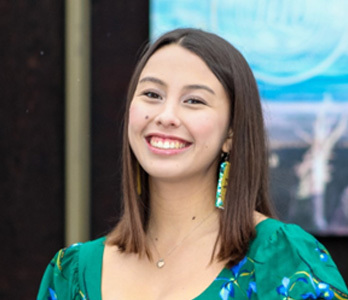
Lauren Canto
Says Lauren (she/her), “I am super excited to join this year’s cohort of empathy fellows! Growing up in Seattle, I remember spending hours on the beach looking in tidal pools to see what organisms I could find.”
Lauren’s passion for conservation continued to grow throughout college, where she was able to partake in various research projects. “I also had an opportunity to get involved in various multicultural clubs and organizations, where I had the privilege to learn from others’ perspectives and experiences, as well as find my community,” she notes, concluding, “Throughout this fellowship at the Seattle Aquarium, I am hoping to create a welcoming space for all people and inspire others from diverse backgrounds to become change-makers in this field!”
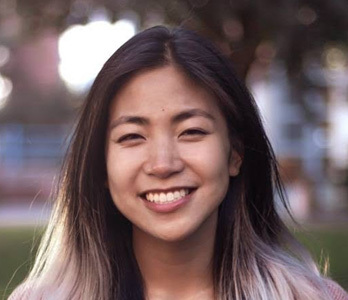
Maddy Laoprasert
Maddy (she/her) spent her childhood exploring the mountains, forests, and prairies of Colorado, where she fell in love with the natural environment. After moving to Seattle, she became fascinated by the Pacific Northwest’s intricate connections between the environment and its communities, which strengthened her commitment to conservation and environmental justice.
Additionally, growing up in a Thai household within a white-dominant area sparked her passion for fostering diversity, equity, inclusion and a sense of belonging in her communities. Through her work in various organizations and time in education, Maddy has become a strong advocate for these values and encourages people to embrace their unique stories to connect with one another.
Says Maddy, “I’m thrilled about the opportunity to combine my passions for conservation, community-building and education with the invaluable empathy-driven lens that this fellowship provides!”
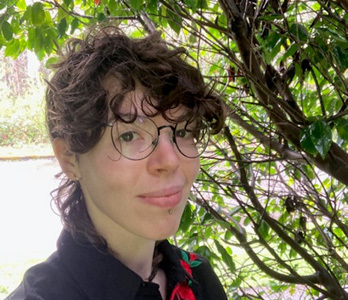
Joey Ruggiero-Diehl
Joey (they/he) is beginning a new position as an empathy fellow with the Aquarium’s Community Engagement team after working as a marine science instructor on our School & Public Programs team. They have been seeking out an opportunity to apply their degree in secondary science education in addition to pursuing their passion for social justice.
“It is my belief that social equity and environmental justice are inextricably intertwined, and I have always been deeply invested in both issues,” he comments. “This empathy fellowship will allow me to combine these passions in a meaningful way by developing programming that incorporates empathy, cultural responsiveness and social-emotional learning, as well as gain experience working with the partner organizations and communities associated with the Aquarium’s Connections program.”
Joey is looking forward to getting to know everyone in their new capacity as an empathy fellow and learning about the ways in which we can leverage empathy to create positive outcomes for both people and animals.
Cave T.
Cave (they/them) is thrilled to merge their many passions including conservation, education, community-building, and gender and racial justice in their new position as an empathy fellow.
They grew up in the Pacific Northwest and became interested in marine conservation and education through experiencing firsthand the disproportionate impacts of environmental issues in their communities. Cave has a non-traditional background, opting out of pursuing higher education, and believes there is much knowledge and wisdom to gain from the world around them.
Outside of work they enjoy spending time with loved ones, listening to music, cooking, creating art and organizing within their community; without their love and support, they wouldn’t be here. La lucha sigue! (English: The struggle continues!)
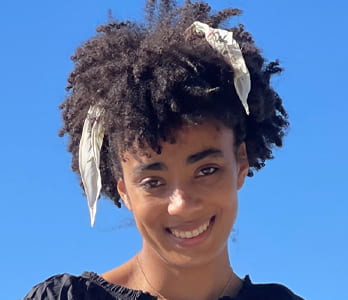
Whitney Diggs
Whitney (she/her) is an empathy fellow who has always had a passion for marine life and wildlife. Growing up south of Seattle, she was able to learn about the marine species in the Salish Sea region at an early age. She had opportunities to explore her environment through numerous school field trips and family outings. Studying and later working at conservation-based organizations helped her realize that conservation is the career path she wanted to take. Through this fellowship, she’s eager to build a strong working understanding of diversity, equity and inclusion and how to incorporate these practices into her work as an advocate for conservation and environmental justice. Whitney wants to help awaken an interest for our natural environment in students from the SeaTac and Tukwila communities—where she grew up—and help create opportunities that may not have been made available to them otherwise. Whitney is deeply fascinated by sea cucumbers and moon snails, and she absolutely loves dogs—especially her chocolate Lab, Kobe. In her free time, she enjoys movies, art, traveling and going to cafés.
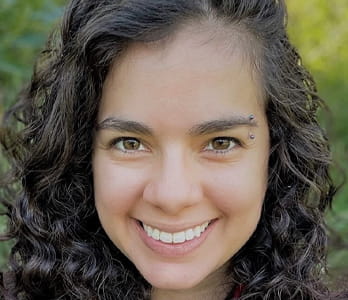
Gabi Esparza
Gabi (she/her) is extremely grateful to have found a fellowship that supports her quest for conservation, community building and developing empathy as an environmental justice tool. She was born in Washington state and has Mexican and European heritage. While growing up in King County, she developed a deep love for the outdoors and realized many people feel separate from nature, which may cause them anguish and suffering. She believes that with genuine connections and compassion, individuals, societies and the natural environment will thrive. Every creature deserves to feel a sense of belonging in communities and ecosystems. Although she has worked in salmon and habitat restoration, one of her overarching goals is to give over-excluded groups a welcoming space to be themselves and have influence over decisions in conservation. Her favorite marine creature is a turtle, and in her free time, Gabi enjoys spending time with her cats, taking care of animals who don’t yet have homes, philosophical discussions, attending concerts and camping.
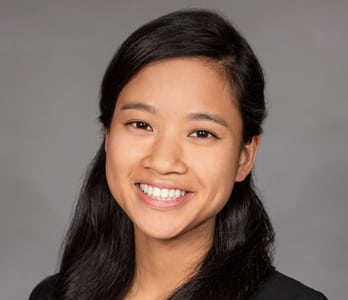
Suzannah Yu
Suzannah (she/ her) appreciates the opportunity to use the lens of empathy to weave together the needs of her local community with marine conservation in her role as an empathy fellow. As a lifelong resident of the Salish Sea region, she is drawn to the marine world for the rich diversity of life, endless source for wonder and a sense of belonging. Suzannah is driven by the desire of realizing a world where all of life is respected, if not celebrated. This includes those with fur, scales or fronds in all of their beautiful colors and ways of being. She is passionate about garnering empathy for marine life and inspiring lifelong engagement with the marine environment. Through her position, she looks forward to the opportunity to co-create impactful programs with her community. Her purpose is to uplift individuals of all backgrounds and empower them to be the change makers and stewards of the environment in their communities.
Suzannah has a strong affinity toward nature and can commonly be found peering in tide pools to observe the interactions of their inhabitants, cultivating a deep admiration for old-growth forests and hiking paths lined with wildflowers to the top of mountains. When found indoors, she is illustrating her daydreams onto paper and nurturing her own urban oasis with her growing jungle of house plants.
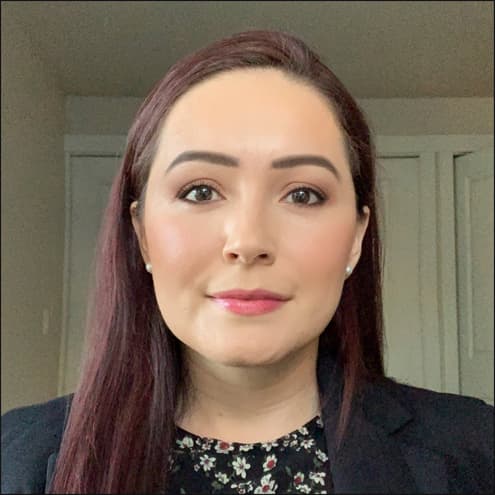
Astrid Moncaleano
Astrid (sher/her) is an empathy fellow with experience managing projects involving collaboration partnerships among governments, nonprofits and communities. Astrid specializes in marine resources management, working determinedly to implement multicultural education programs engaging and connecting individuals from diverse backgrounds with conservation initiatives. Astrid believes that the purpose of our generation must be to take care of the environment and that is why she gathers enthusiasm, passion and motivation to learn how to pursue this commitment. Cephalopods and doggies marvel Astrid, especially her fellow Bernese mountain dog, Lulo. Astrid enjoys hiking, fiction book-movies, podcasts, history and music.
“To make conservation actions influential and sustainable, we need to address empathy for humans from other humans to facilitate other species’ connections. We must encourage and recognize the value of new perspectives, innovation and creativity offered by people from different cultural backgrounds as a way to diversify and build empathy in our organization. For Black, Indigenous and People of Color (BIPOC) that belong to Latinx communities, accessing professional careers in conservation is just a possibility for other people; it is a world far from their reality. For this reason, I am developing a two-day workshop focus on the Latinx community youth between 16 to 21 years old to promote skill-building and pursue professional opportunities in the marine conservation field. Through this project, I hope to impact participants through cultural empathy and provide pathways to marine conservation careers.”
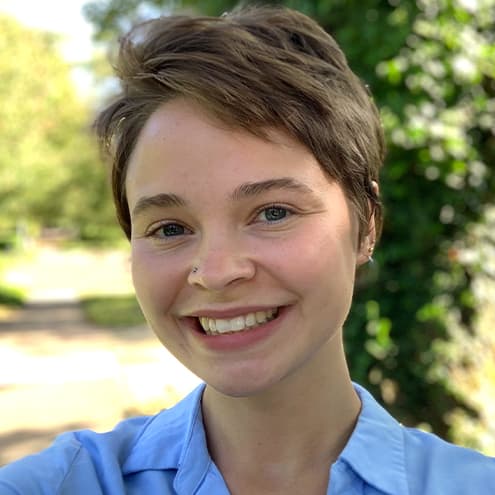
Jules Rader
Jules (they/them) is thrilled to join the first cohort of empathy fellows! Jules is particularly excited about their empathy community action project (ECAP), a marine conservation club for LGBTQ+ youth: the Aqueerium. Finding and building community have been central in navigating their identity and finding ways to participate in collective action. Over the last few years, Jules has tutored middle and high school students and discovered their love for teaching and mentoring students. Jules is eager to prioritize environmental and climate justice in marine conservation education, and to create a space for LGBTQ+ youth to build community and take action together.
“My ECAP project is an eight-week-long, empathy-based invertebrate and marine conservation education program for LGBTQ+ youth. Each week we will host a virtual community space where LGBTQ+ youth can connect with peers, learn about nudibranchs and engage with marine conservation advocacy work. We will deliver empathy-based programming about: nudibranchs and their ecosystems; conservation issues and habitat destruction; environmental justice and conservation movements; and pro-environmental actions and conservation behaviors. We will also facilitate a panel on LGBTQ+ representation in STEM featuring LGBTQ+ aquarium and STEM-field professionals. Along with a team of peers, participants will choose one nudibranch as their team mascot and create a “TED-talk” to share why they picked it and what they have learned. The final weeks of the program will culminate in teams planning and taking action to advocate for marine conservation. This program aims to make aquarium and conservation work feel accessible and exciting for LGBTQ+ youth, who are often underrepresented in and driven away from careers in STEM fields.”
